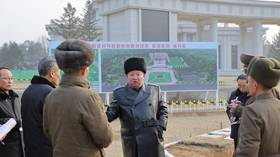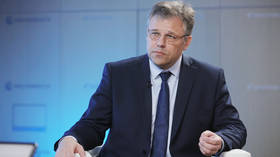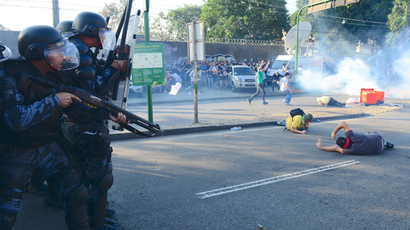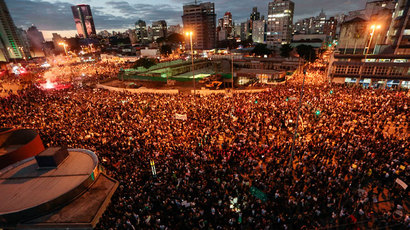Crowd of 30,000 overruns police cordon ahead of Brazil football match (VIDEO)
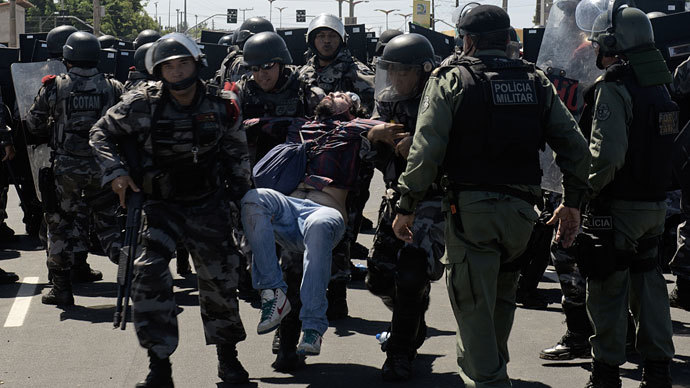
Violent clashes have erupted in the northern city of Fortaleza in the hours leading to a Confederations Cup match with Mexico. Dozens were hurt as riot police unleashed tear gas and barrage of rubber bullets at a crowd of some 30,000 Brazilian protesters.
Images and video of the demonstration just outside of the
north-eastern city depicted throngs of protesters marching down a
road towards the stadium hosting Wednesday’s match. One person
was reported to have suffered an eye injury and another was taken
away on a stretcher.
The protesters were marching against government spending on the
World Cup and the Olympics. During the Fortaleza protest,
demonstrators carried banners reading "a teacher is worth more than
Neymar," a reference to one of Brazil's star players
slated to appear in Wednesday’s game.
Despite some rhetoric targeting players, in addition to FIFA, the global football governing body, Brazil’s national team players expressed solidarity with demonstrators.
"After seeing the people on the streets claiming for
improvements, it makes me feel like joining them," striker “Hulk”
(Givanildo Vieira de Souza) was quoted as saying by the
Associated Press.
"They are doing the right thing, what they are saying makes sense
and we have to hear them. Brazil needs to improve, we all know
that," he added.


The Confederations Cup, which is still underway, had the
misfortune of beginning in tandem with planned hikes for public
transportation fares, which were the catalyst for demonstrations
nationwide.
In response to the protest in Fortaleza, FIFA president Sepp
Blatter, urged protesters not to "use football to make
their demands heard.”
The fact that vast sums were spent on new stadiums and the
refurbishment of existing venues ahead of the World Cup in
Brazil, while many in the country still live in poverty, is seen
by many as a symptom of their government’s ineptitude.

As the world’s football governing body and organizer of the
World Cup, FIFA has found itself in the delicate position of
having to acknowledge public discontentment in the country, while
still protecting the interests of the massively popular and
extremely lucrative sport.
Brazil's government had warned that it would deploy the National
Public Security Force, the country’s national guard, in the five
cities hosting the Confederations Cup: Rio de Janeiro, Belo
Horizonte, Salvador, Fortaleza and the capital Brasilia.
On Tuesday the mayors of Cuiaba, Recife, Joao Pessoa and other
cities had already announced a reduction in bus fares in response
to this week's protests. On Wednesday, the municipalities of Sao
Paulo, the country’s largest city, along with Rio de Janeiro were
prepared to follow suit and also cancel proposed fare
hikes.










